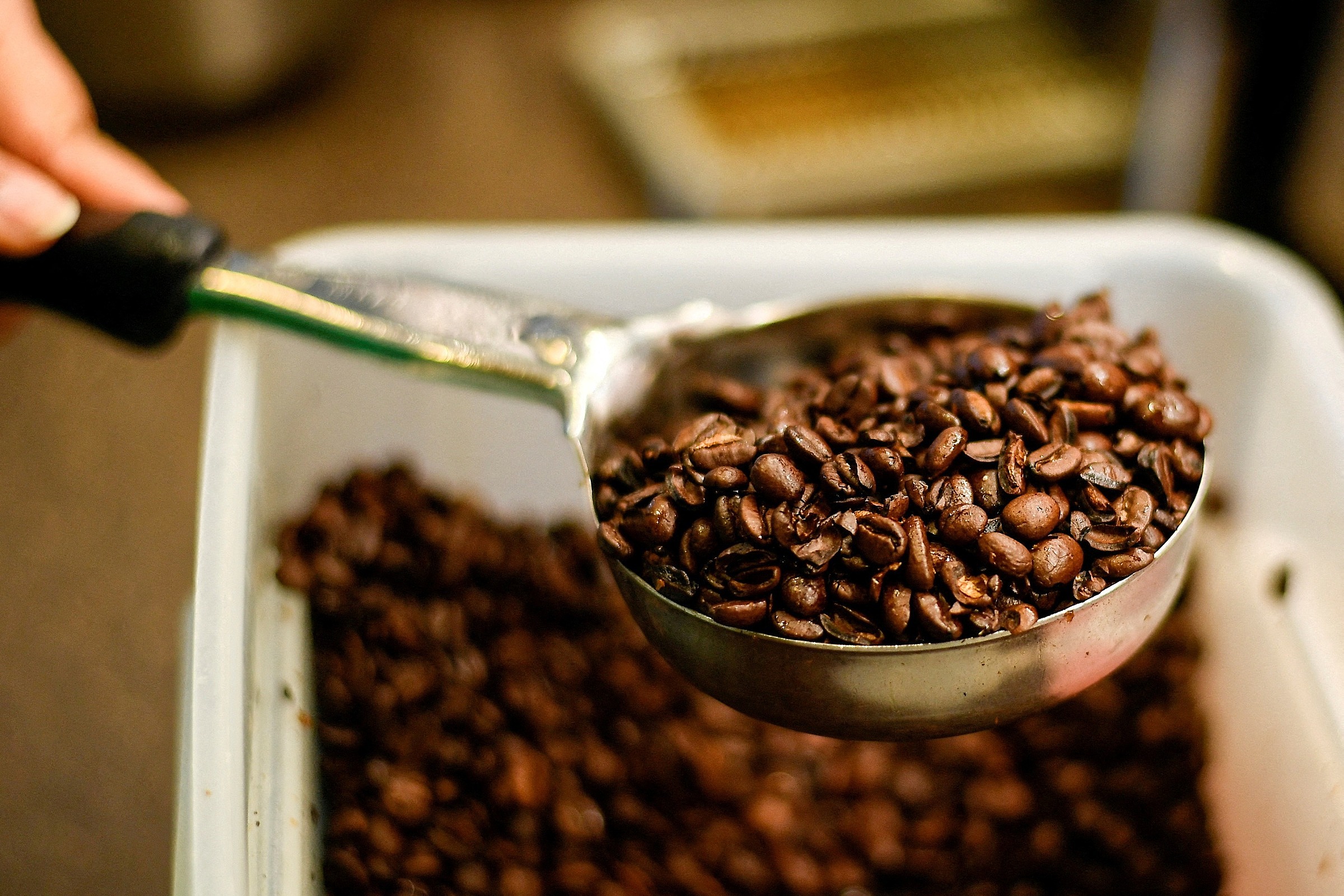US retail coffee prices jumped nearly 21% in August compared to the same period last year, the highest since 10/1997, according to the Consumer Price Index (CPI) released on 11/9. Compared to the previous month, prices also rose 4%, the most in 14 years.
The sharp coffee price increase is partly attributed to former President Donald Trump's import tariffs. The US is the world's largest coffee importer, as few places within the country can cultivate the crop. According to the National Coffee Association USA, 99% of coffee consumed in the US is imported.
Brazil, one of the countries facing the highest import tariffs when entering the US, is also its largest supplier of coffee beans. Goods from Brazil are currently subject to a 50% tariff, stemming from Trump's disapproval of Brazil's prosecution and conviction of former President Jair Bolsonaro, an ally of his.
 |
Coffee beans at a Starbucks facility in Texas. Photo: Reuters |
Coffee beans at a Starbucks facility in Texas. Photo: Reuters
Diane Swonk, chief economist at KPMG, predicts coffee prices "will easily set new records when the 50% US tariff on Brazil imposed last month takes full effect."
Other major coffee-exporting countries also face tariffs when selling to the world's largest economy. Colombia and Vietnam currently face rates of 10% and 20%, respectively.
Major brands and small businesses are trying to absorb some of the costs, but price increases are inevitable. J.M. Smucker, the parent company of the Folgers coffee brand, announced last month that it would likely raise retail prices for the third time this year, following increases in May and August.
In New Orleans, a chain called French Truck Coffee has added a 4% surcharge to orders to offset costs.
However, Starbucks, the world's largest coffeehouse chain, has so far maintained its prices. In July, the company stated that due to its unique purchasing methods, "the impact of tariffs on Starbucks is slower than the market." They project the highest coffee costs will hit in 2026.
In August, the US CPI rose 2.9% year-on-year, the highest since January. This complicates the Federal Reserve's (Fed) calculations, as the labor market shows signs of weakening. Despite this, investors remain confident that the Fed will lower interest rates at its next meeting, from the current 4.25-4.5%.
Ha Thu (Reuters, CNN)












